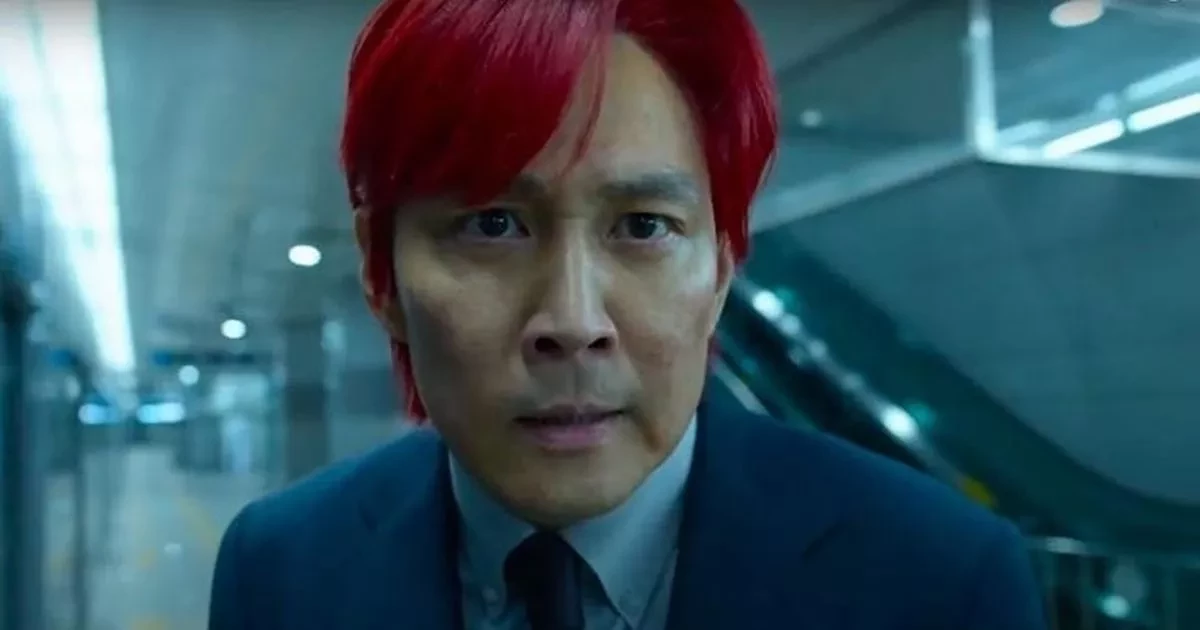"Squid Game," the South Korean thriller that took the world by storm, concluded its first season with a finale as intense as the series itself. In this article, we dissect the complex ending, exploring key events and their implications. From unexpected deaths to shocking revelations, the finale left viewers on the edge of their seats.
'Squid Game' Ending Explained: What Happens At The End Of Season 1?
 Source: Netflix
Source: Netflix
The climax centers on the final three contestants: Gi-hun, Sae-byeok, and Sang-woo. As alliances shift and betrayal unfolds, Sang-woo's ruthless pursuit of victory takes a tragic turn. A celebratory dinner leads to a fatal stabbing, pushing the childhood friends into a showdown in the eponymous game, "Squid Game."
The Tragic Face-Off:
In a game of chicken, Gi-hun and Sang-woo face each other, embodying the essence of the entire series — a struggle for survival. Gi-hun, driven by anger and empathy, gains the upper hand but chooses not to kill Sang-woo. Instead, he forfeits, unwilling to let the games claim another life. In a heartbreaking twist, Sang-woo, consumed by guilt and desperation, takes his own life, leaving Gi-hun as the reluctant winner.
Revealing the Puppeteers:
On the journey back to reality, Gi-hun encounters the enigmatic Front Man, the overseer of the deadly games. The revelation that the Front Man is Detective Hwang's missing brother adds a layer of complexity. Hwang, attempting to expose the operation, meets a dubious fate, leaving his survival uncertain.
The Legacy of Winners and Losers:
Gi-hun's return to the real world is marked by tragedy. His triumph in the games is overshadowed by the death of his mother and the revelation that his friend, Oh Il-nam, was one of the masterminds behind the deadly competition. Il-nam's motives, driven by a desire to feel alive before succumbing to a terminal illness, add a layer of complexity to the narrative.
Gi-hun's Transformation:
In a symbolic act of defiance and change, Gi-hun dyes his hair a shockingly bright red. This visual transformation reflects the profound impact of the games on his character. With newfound wealth, Gi-hun fulfills the final requests of Sae-byeok and Sang-woo, showcasing a glimmer of humanity amid the brutality.
What The Ending Hints For The Future
Despite Gi-hun's initial attempt to break free, the closing moments suggest that the game is far from over. As Gi-hun confronts the recruiter, the possibility of a sequel looms large. The open-ended conclusion invites speculation about future storylines, including the unresolved fate of Detective Hwang and the intricate web of characters connected to the deadly games.
Gi-Hun's character arc is expected to delve into his determination to dismantle the sinister forces orchestrating the deadly games, bringing an added layer of intensity to the storyline.
A significant element to be explored is Gi-Hun's choice to remain in Korea instead of joining his daughter in the US. This decision is poised to have profound consequences, both emotionally and narratively. It sets the stage for a character-driven exploration of the aftermath, adding emotional depth to the overall plot.
Fans can anticipate a more comprehensive understanding of the mysterious games and a closer look at the individuals responsible for their inception. Season 2 aims to unravel the enigma surrounding the clandestine organization behind the Squid Game, shedding light on their motives and the extent of their influence.
Conclusion:
"Squid Game" not only captivated audiences with its visceral games and suspenseful plot but also left them contemplating the consequences of unchecked capitalism and the morality of survival. The ending, rich with symbolism and unanswered questions, sets the stage for future exploration of the characters' fates and the sinister puppeteers behind the deadly games.